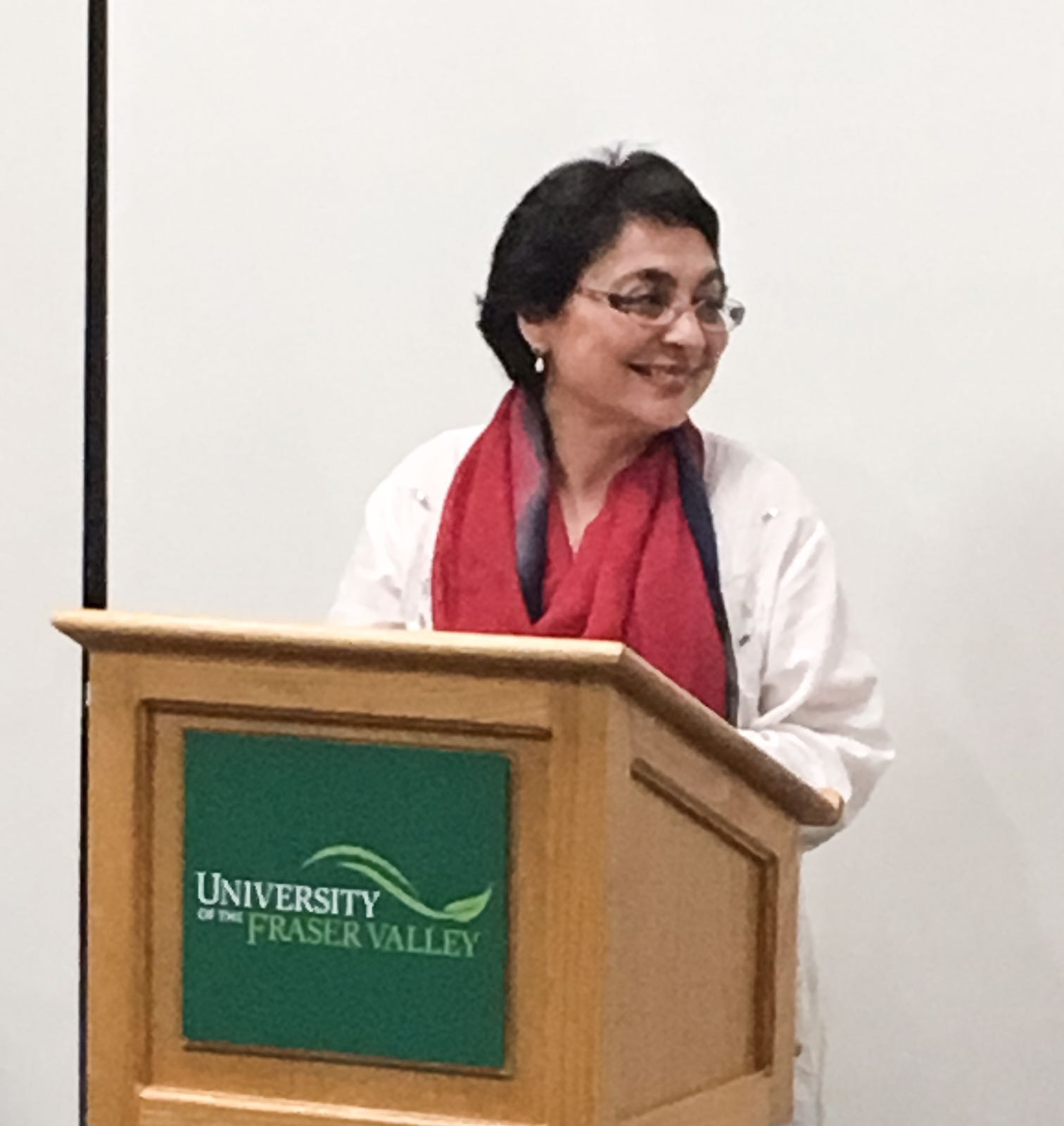 About 30 years ago, during a home renovation, several workmen used our guest toilet. When they left, I could not bring myself to clean it. I stood in my guest bathroom, tears welling, throat constricting, self-pity rising. And I was shocked at myself.
About 30 years ago, during a home renovation, several workmen used our guest toilet. When they left, I could not bring myself to clean it. I stood in my guest bathroom, tears welling, throat constricting, self-pity rising. And I was shocked at myself.
As a Sikh, I’m not supposed to have a caste, leave alone practice caste. The gurus gave us all the same last name Singh to denote one human family. But… we have caste. I have it. And I had imbibed one of the worst aspects of caste privilege: disgust of human waste.
Would I have felt the same disgust about cleaning that guest bathroom if one of my friends or a family member had used it? Probably not. Then why…? Caste.
Every society has its original sins – the US has slavery, Canada has its treatment of First Nations. Indian society has caste. Last names, skin color and occupation are its indicators. Whether you care about someone’s caste or do not care, you have to decide where you stand on the issue, just to converse. Desi conversations begin with some gentle inquiry or visual assessment as to whether you are above or below your fellow participant. Misunderstanding your place in the hierarchy can require you to change tone in an instant, from knowing/advising/leading/commanding to deferential/following. In more egalitarian societies, this only happens within corporations.
Patriarchy and hierarchy are features of human societies, but nowhere have the two been so firmly intertwined, codified, and socially-policed as in India. Patriarchy gives us our last names, our caste names. These set our place in the social hierarchy for life.
For life! No matter how much money you make (caste is therefore not class). And it seems you will always represent your caste, no matter how much you want or try to be just yourself. Get too strong, confident or rich, and some upper caste person or group will tear you down, violently if they think necessary.
For Hindus, your Brahmin/Kshatriya/Vaishya/Sudra caste is the result of unknown merits and misdemeanors in previous lives, totted up by that supremely vengeful deity Yama — so your caste is deserved and all your fault. In a cosmic game of Snakes and Ladders, you somersaulted down a snake’s tail from high to low or climbed a ladder from low to high, and are crawling towards Moksha, your deliverance from the birth-death cycles. (Lifetimes, in this view, aren’t fun).
Try converting to get away from your Hindu caste to Islam, Sikhism, or Christianity which claim to be caste-free. Your last name gives you away; most Hindus “know” you or your forebears must have converted from their lower castes and may treat you accordingly.
Muslims have another caste system too. Sayeds — descended from the Prophet (PBUH)– and sheikhs. I’m told Sheikhs are lower. In what way or why, no one can really say.
I haven’t met many Sikhs who admit to forebears converting from Islam, but we did. Sikhs have high to low stratifications based on our source of conversion from Hinduism: brahmin, khatri (from kshatriyas), jaat and chamar. To arrange marriages, we find multiple strata within those four. Not one strata would inspire our gurus to say “shabash.”
Try changing your last name to a higher caste name; your skin color can give you away. Try marrying across caste or religion and see if you can shake caste that way; most desis would advise you to leave India for your/your spouse’s safety. And in the diaspora? Tread carefully when you meet a desi who grew up in India or Pakistan. You never know how they see themselves in relation to your caste.
Sikhs have managed to overcome one aspect of the Hindu caste system: disgust at eating “jootha” (shared food). In the gurdwara, we sit side by side in our community kitchens, and are served from the same buckets and baskets. But it’s a rare Sikh family that allows a son or daughter to marry across caste or religious lines — even in the diaspora. The price of non-conformance is steep and if you’re the transgressor, you may incur shunning by family members who ostensibly loved you a moment before you “made us look bad.” Marrying a “gora” can sometimes bring less disgust than marrying down-caste or someone of a different religion, or marrying someone of a darker skin color.
(Not always, so try this at home with caution, please).
When in doubt, we desis tend to identify with upper castes. A Pakistani-Christian friend was disturbed by the term “person of color” being applied to her. She never thought of herself as non-white. Hmmm. And children? In an intercaste marriage, do they identify with the higher- or lower-caste parent?
As I stood in my guest bathroom, I asked myself: how had I learned my place in the caste system? How had I learned to feel disgust at human waste and bodily fluids? I do not remember anyone telling me that touching those is the work of lower castes.
No one had to. Growing up in India, the proof was all around me. Others cleaned toilets or touched dirty dishes — not our family members. Other people worked with their hands, not our family members.
When I overcame that disgust, picked up the Lysol and set about cleaning that toilet, I took the first step toward unlearning a tiny part of the social training we call caste. I knew then as I know now: it will take a lifetime, but I have to try.
Shauna Singh Baldwin


One of the best description of caste and the way it is embedded in us. Intentionally or unintentionally we are practicing it. Shauna is an artist and she paints a true picture of issues which are deep rooted in our society.
Ma’am as i read your essay it reminds of a human being so pure in heart and clean in thoughts..no frills n fancies but a sheer original peice of writing which fathoms the follies n foibles of our human caste existence — a counterfeit !! Amazing you as always..hoping to hear more from you..
Beautifully said.